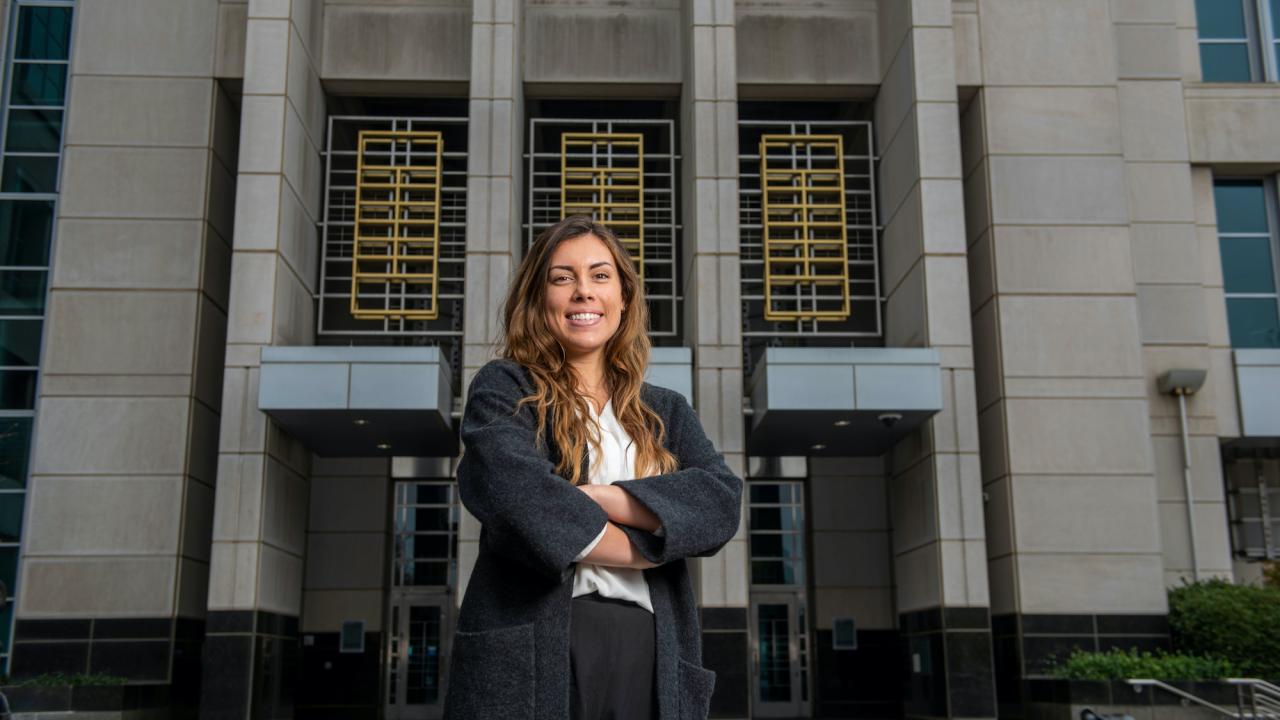I have been struggling to find a job.
Since graduating in June 2022, I cannot tell you the amount of times I’ve been asked: “So what’s next? What’s your plan after graduation?” I know family, friends, and co-workers mean well and are excited for my future, but if I was answering honestly, my response would be, “I have no idea.” For the past two months I’ve spent hours scrolling through LinkedIn daily, and all it has amounted to is rejection after rejection. So, to be honest, I have no idea what I’m doing, no idea what I’m doing wrong, and no idea why I’m the one friend left without a job or plan. Or at least, that’s what it feels like.
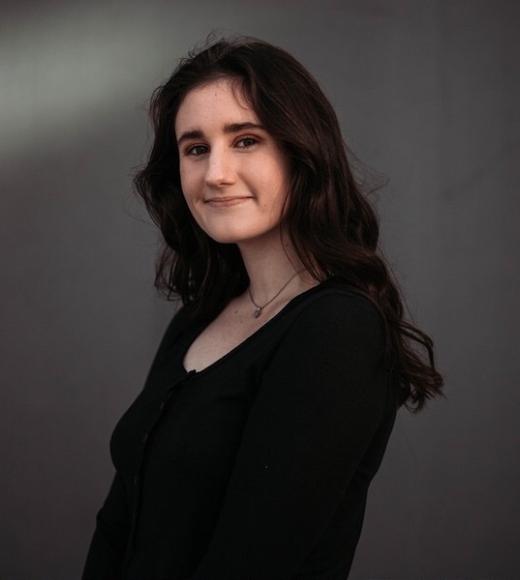
So when my supervisor asked me to reflect on my post-grad life, I was sure I was not the one to be writing this blog post. However, because I felt so alone in my job hunt challenges, I began to understand how important it is to share the reality of job hunting with other graduates who might also feel they’re alone. And, more selfishly, this seemed like a good opportunity to chat with career advisors and see how I could improve my job search.
I sat down with Cassandra Spencer, a career coach through The Muse, and Emma Singletary, a career advisor for the health and biological sciences at the UC Davis Internship and Career Center (ICC). Both interviews forced me to learn from my mistakes during my job application process. Though the process of researching this story was difficult and humbling, it was also worth it. It relieved me of the pressure I’d been applying on myself for the past months and put my post-grad journey into perspective. I’d like to share the advice and resources these incredible coaches gave me.
1. Know your options after graduation
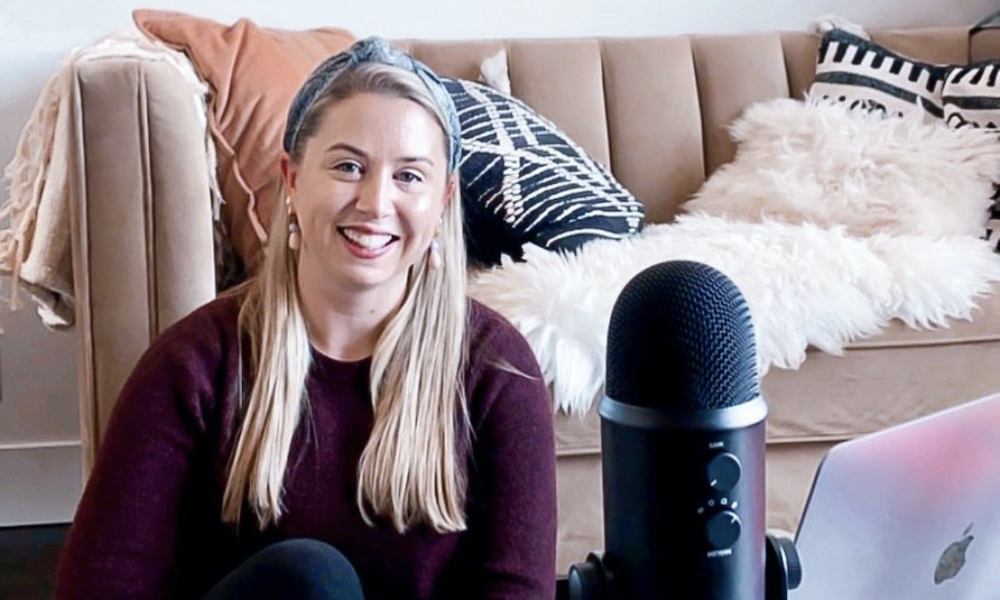
Fresh graduates often feel an intense pressure to know what their next step is. I think it’s very easy to get caught up in what you believe you should be doing, instead of pausing to evaluate the many options you have post-graduation. So to start the interview, I asked a seemingly obvious question: “What are my options post-graduation?”
Cassandra came up with three common categories: full-time work, additional education, or volunteer/service-based or alternative experience. That last choice is very often looked over or forgotten. Here’s some examples:
- Service-based organizations, like Americorps or Peace Corps, offer career-building programs to recent graduates.
- Scholarship programs, like those offered by the Fulbright Program, allow young professionals to further develop their career, education, or research, while exploring the world.
- Exchange programs, internships, or fellowships can allow recent graduates to gain international work experience, like the JET or TAPIF language programs.
- Rotational programs, lasting anywhere from 1 to 3 years allow young professionals to explore multiple positions within their field to see what career path best suits them, even moving location every 6 to 12 months.
“So these rotational programs … can be really beneficial for people who maybe didn't take advantage of internships or other opportunities while they were in school," Cassandra said. "It can also be really great for people who just want to test out a few things."
Emma knows better than most what it means to really explore your options after graduating. She was very honest in her journey post-graduation. She recently received her masters in counseling, with a specialization in career counseling, but received her bachelor's degree in history. When she finished her undergraduate education, she thought all she could do with her history degree was teach or work in retail. Of course, this was not true! She opened up about realizing her grad program to pursue a Ph.D. in history was not for her. But understanding her options, “knowing where to go, and what questions to ask,” Emma said, were skills she had to learn to understand her academic and career options. “There are literally so many things people can do with their degrees,” Emma reminded.
If you take time to consider your options during your final year in college or after graduation, it can allow you to make a decision based on what interests you, rather than rushing into a choice based on what you think you should do. You can explore programs you didn’t know about, which can lead to unique opportunities that help you discover what career path you’d like to follow.
2. Transition from campus to the professional world
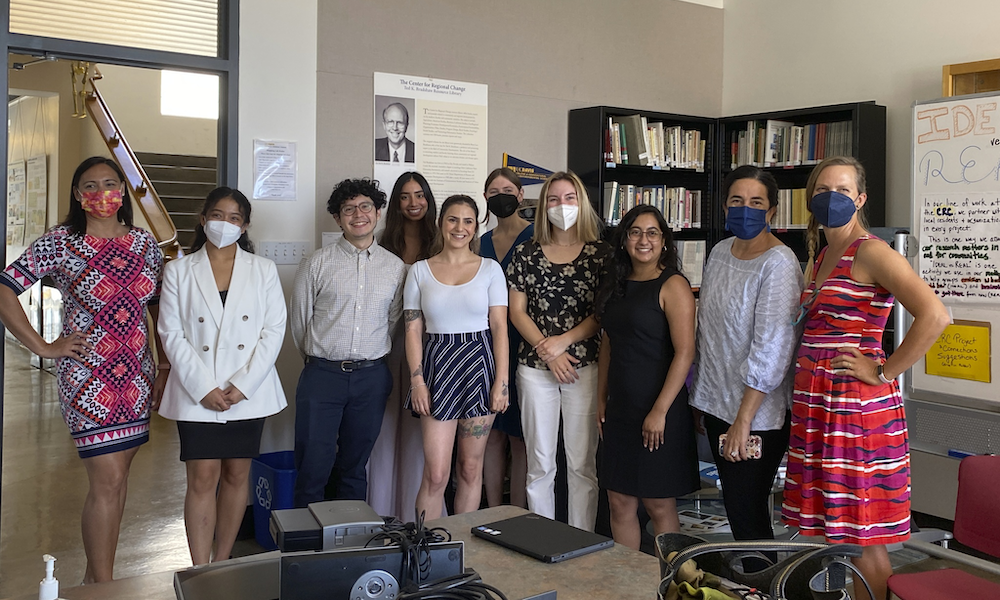
If you decide to jump into the job market after graduation, take some time to prepare and process the transition from the academia to the professional world. Cassandra noted that college graduates have been moving through academia our whole lives, but not everyone has experience in a work environment.
Applying to graduate school is not easy, but the process can be more familiar than applying to a new job. Many of us have written personal statements and research proposals for courses. We understand testing and transcripts. But cover letters, resumes and professional interviews can be new territory. Heck, I didn’t even know what job title I should be searching for when I began job hunting. I know what I want in a school, but not in a company. I know what services I need at a school, but not what benefits I need from a job. Finding entry-level positions, successfully applying, and succeeding at an interview seemed foreign to me and — after many rejections — impossible.
With this much confusion, I needed Emma’s reminder to be kind to yourself. She reminded me that job hunts commonly take six to nine months, so have patience and plan ahead to create an application schedule that matches your timeline. “I know that may sound like a scary number, but use that number to give yourself a little grace. Just because you don't have a job after graduation does not mean that the world is going to come to end,” Emma reminded. So prepare for that timeline and align your expectations and goals appropriately.
So if you’ve decided you will apply to a full-time job, how do you find entry-level positions?
3. Focus your job search

First, know what career options you’re interested in. If you’re struggling to know what to pursue, Emma recommended checking out the ICC's Majors Data. This and similar platforms, such What Can I Do With This Major? (or this blog you’re reading!) allow recent graduates and young professionals to explore career options within their major. It helps to understand what recent graduates have done and where they’ve gone, and how they've gotten there. If you’re really lost, Emma suggested taking online quizzes to start understanding career options and values. Try this one from the Princeton Review, even if just for fun.
Once you have an idea of what field and positions you’re interested in, there are many free online platforms recent graduates can explore. Cassandra pointed to your school's job center as your first stop. At UC Davis, the Internship and Career Center (ICC) offers many resources to better understand your career options and platforms to begin your career search. They can help with career exploration, resumes, cover letters, internship advising, part-time jobs, how to start a job search, and more. The ICC is divided into program areas so you can get field-specific help, with career fairs each quarter divided by college. The ICC hosts a range of job search tips and techniques, while providing access to resources like Handshake. “I think those platforms … are a really good starting point, because in most cases, the companies that are posting on that platform know that it is a school’s platform. And so there’s already typically an expectation that you’re not going to be filtering through jobs that are looking for 10 years of experience,” Cassandra noted.
The job search options continue with platforms like LinkedIn, where you can network, learn about career development, and find jobs. “Use your network,” Emma emphasized, the one built from internships, fellowships, or jobs held throughout college or trusted individuals. Ask them if they're willing to pass on jobs they hear about or act as a reference for you. “That's a great way to find out about more things in your industry,” Emma said.
“But what I think is really important for young professionals and soon-to-be recent grads to think about is centralizing their job search, so really thinking about what are the fields/industries they are most interested in and looking into job boards that are specific to those areas,” Cassandra said.
Once you’ve focused on your fields of interest, you can find a more direct path. Emma introduced me to Idealist, a platform designed for mission-driven job listings often in not-for-profit organizations. I want to pursue development positions in the nonprofit sector, and when I used this more specialized platform I got a response in less than two weeks, a very different experience than LinkedIn. Save time by targeting your job hunt, rather than scrolling for hours by position titles.
4. Prep for the application and interview
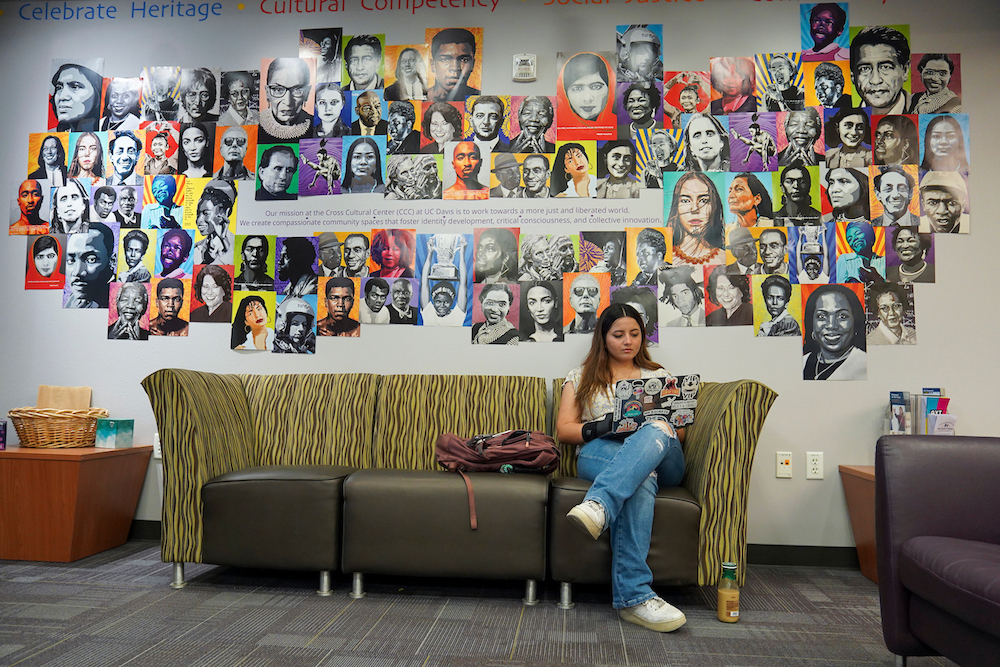
Okay so you’ve explored all the career options your major can lead to and determined the fields you’re interested in. You might have even found some job postings you’re interested in! Now what?
I found the application and interview process the most intimidating step, because I actually had to put myself out there and discuss my experience. However, your resume and cover letter are an important and impactful introduction. As a first check, Cassandra recommended “picking strong verbs that [showcase] skill and action and impact” on your resume. The difference between words like “help,” “assist,” or “aid” and “oversaw,” “managed,” or “facilitated” will determine the resonance of your resume and clue-in the employer to your experience and what role you may take in their organization.
For more general information, Emma recommended reviewing the Career Resource Manuel (CRM) on the ICC website. The manual distinguishes between resumes and CVs, formatting a cover letter, and interview techniques. “So what I recommend students do is go through [the CRM] and see the things that you like and what works best for you, because the more authentic it is to you, the more powerful it's gonna feel,” Emma said. To make the application process easier, Emma recommended creating a master resume to always have as a base to pull from, so you can easily tailor your experience for multiple jobs.
With online profiles, Cassandra noted the importance of using your headline or professional statement. She warned against solely using that space to describe yourself as a “student” or “recent graduate.” Rather, Cassandra recommended showcasing what you do and why or personal characteristics so employers can learn more about you. “Using that space, getting creative with that space, seeing other people in the fields and industries at the companies you’re interested in — what are they doing and how are they describing — and just taking advantage of it to stand out and introduce yourself to people,” Cassandra said.
So if your resume caught an employer's eye, how do you prepare for the following interview? When preparing for an interview it is important to use the job description as your base, as employers will likely pull questions directly from the duties outlined. “Really [use] the information in that job description to help you determine what stories and examples [you] need to think about,” Cassandra noted. Stories and examples help validate what you're saying. A common method you can use is STAR — Situation, Task, Action, and Result — which allows you to format easy-to-follow responses. Aside from technique, prepare in advance and practice common questions:
- How to introduce yourself
- What are your strengths and weaknesses
- And why you’re interested in the role
“Owning the experience that you have is important,” Cassandra concluded.
Many undergraduates and recent graduates dismiss relevant and critical experiences that showcase key skills, she said. Cassandra emphasized making a connection between your experiences and the program or job you’re applying to. Be mindful of the reader so the employer can easily see why you’re a strong fit. “Thinking not just what did I do, but what skills did I use [and] what impact did I have,” she said.
As Emma emphasized, advocate for yourself when applying to a position. Know that you are a strong candidate who can offer valuable perspective and skills. It’s just a matter of finding the right fit.
5. Career development is a never-ending journey
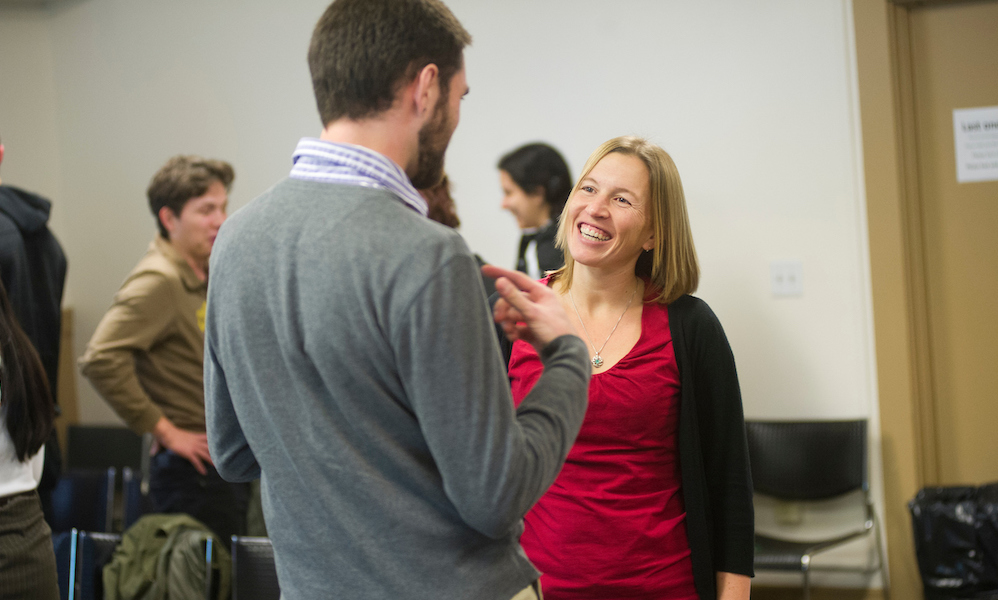
Even with all this preparation, rejection is still inevitable. So how do you deal with those moments of rejection?
Treating them as just that — moments — can put your job hunt into perspective. “Part of job searching is making sure that as you are job searching, you’re creating balance,” Cassandra said. Finding a balance between quantity and quality will allow you to be more purposeful in your application.
When rejection does happen, it’s okay to take a step back and process any resulting emotions. Honor that frustration, Emma said, and know that the rejection is not personal. Rejection happens for many reasons, including employers not knowing what they're looking for. Emma noted that jobs posted as “entry-level” can really be “associate” or above. “Sometimes it’s tricky finding employers who align with the appropriate expectations of someone who's recently graduated,” Emma said.
“As much as you can, take [rejection] as a learning opportunity,” Cassandra encouraged. “If you can recognize the ways in which you are improving throughout that process, if you can have a takeaway from it … that gives you that point to say, ‘Okay, what do I need to work on?’” Use your support network. Chat with family, friends, peers, or alumnus to know this isn't a process you are alone in. Job hunting and career development is a journey that everyone continues to learn from.
Continue your education after graduating by treating your job hunt as a learning opportunity. “Trying to keep a growth mindset ... ‘I’m not good at this yet,’” Emma said. “All of these skills can be built … so have a little bit of patience with yourself,” Try to make realistic or SMART — Specific, Measurable, Attainable, Realistic, and Time Sensitive — goals for yourself by creating small steps to achieve an overarching goal. “You start to build this train of these actionable items that you can cross off a list … that makes [the job hunt] a lot easier to control,” Emma said.
Podcasts can be a fun option to learn about your professional journey. Cassandra hosts and co-hosts two podcasts:
Many platforms provide career development services, such as The Muse. As a UC Davis alumni you have access to all the resources discussed above for a full year following graduation. For example, I graduated in June 2022, so I can continue to attend career fairs, participate in workshops, and set up advising appointments until June 2023. After that, alumni can seek career one-on-one advising through the CalAggie Alumni Association and still use Handshake and attend career fairs.
There will be more challenges and confusion when you finally land the job. How do I negotiate a salary? How do I find a work-life balance? What should I expect from my employer? So remember to keep these resources in mind during your first year on-the-job. “You're exploring your career your entire life,” Emma concluded.
Katie Dineen graduated from UC Davis with a major in international relations and minors in French, human rights, and professional writing. Thanks to Emma's recommendation to try the job platform Idealist, she recently secured a position in a Seattle nonprofit. She credits the research for this blog post with helping her find the job!
